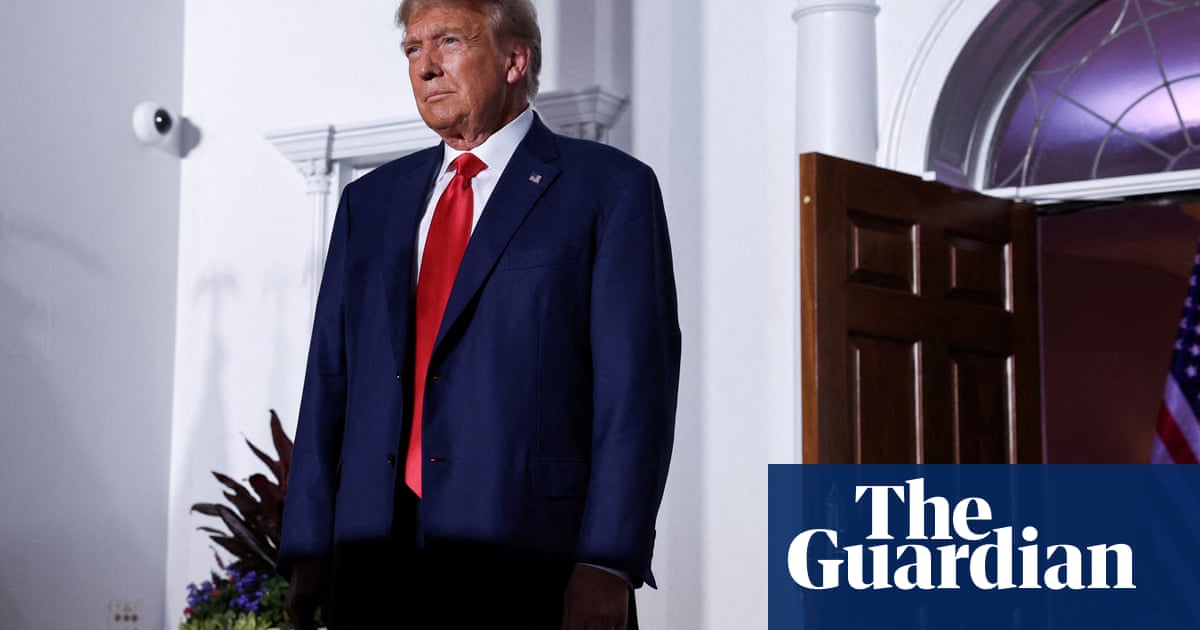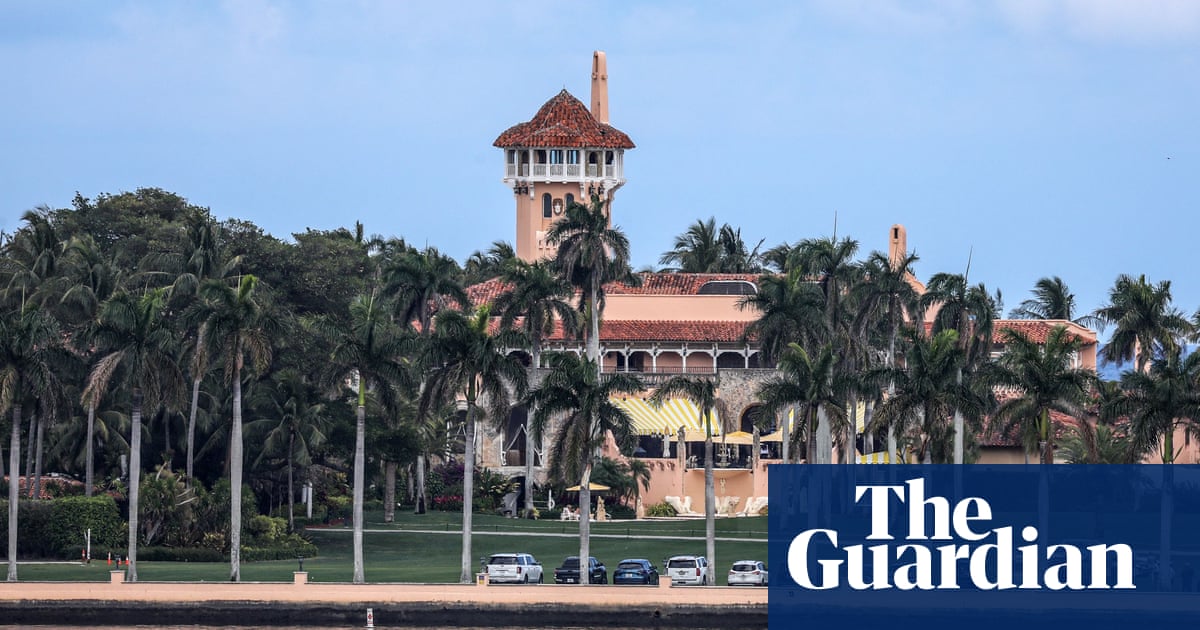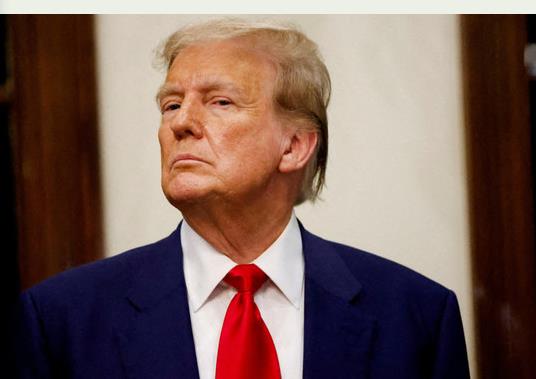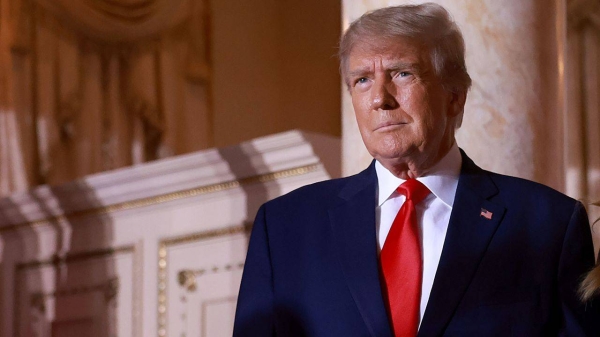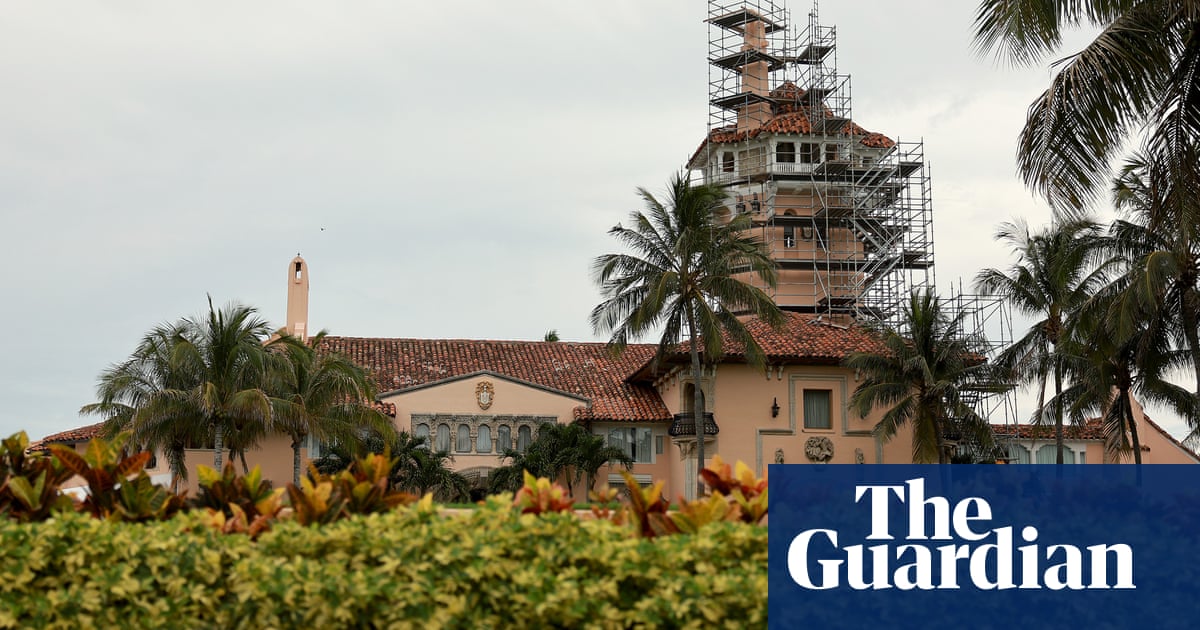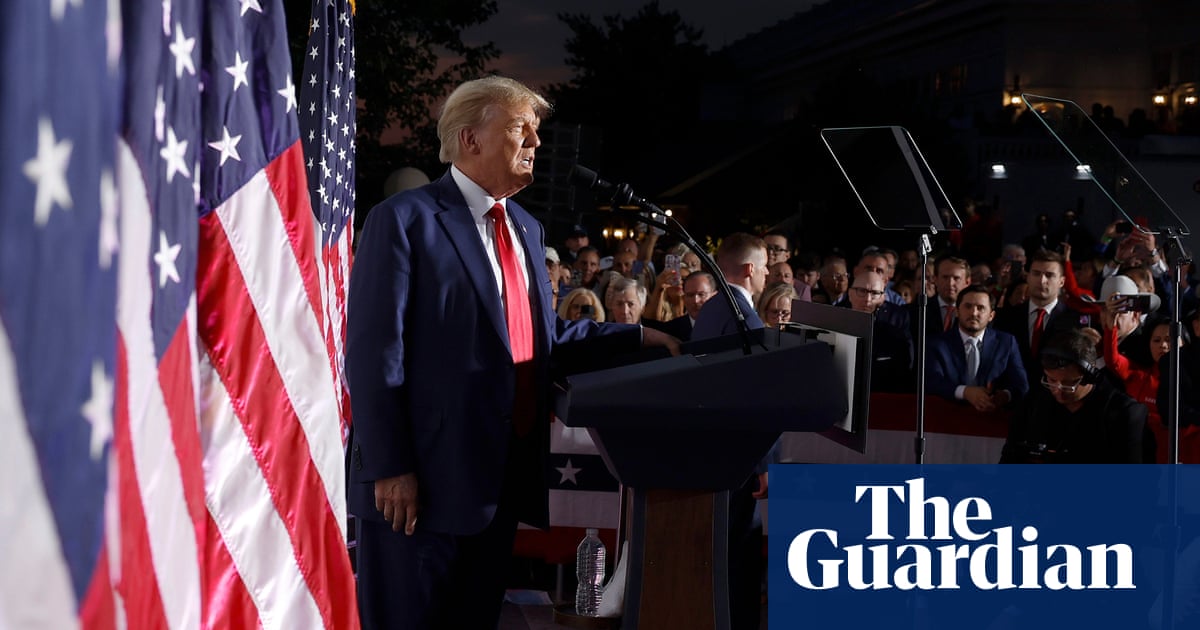
Federal prosecutors asked the judge presiding over the Mar-a-Lago classified documents case on Thursday to reject Donald Trump’s request that any trial should not take place until after the 2024 presidential election and reset the trial date for December.
“There is no basis in law or fact for proceeding in such an indeterminate and open-ended fashion, and the defendants provide none,” the prosecutors wrote in an 11-page court filing that sharply attacked Trump’s arguments.
The dueling requests from Trump and the justice department present an early test for the US district court judge Aileen Cannon, a Trump appointee who is under heightened scrutiny for previously issuing favorable rulings to the former president during the criminal investigation.
The delay Trump is seeking would be hugely consequential. If the case is not adjudicated until after the 2024 presidential election and Trump, the frontrunner for the Republican nomination, is re-elected, he could try to pardon himself or direct the attorney general to have the matter dismissed.
Trump was charged last month with the retention of national defense information, including US nuclear secrets and US plans for retaliation in the event of a military attack, which means his case will be subject to the Classified Information Procedures Act, or Cipa.
In their court filing submitted on Thursday, prosecutors in the office of special counsel Jack Smith took aim at several of Trump’s arguments for an indefinite delay, rejecting the claims that the charges touched on novel legal issues or that the discovery process was uniquely complex.
The filing said that the Presidential Records Act, as claimed by Trump’s lawyers, was not a criminal statute and an argument to suggest that it could be used to dismiss charges of retaining national defense information was close to being frivolous.
“The defendants are, of course, free to make whatever arguments they like for dismissal,” the prosecutors wrote. “But they should not be permitted to gesture at a baseless legal argument, call it ‘novel,’ and then claim the court will require an indefinite continuance.”
The filing noted that the justice department was prepared to start discovery of the classified documents it expected to use at trial and turn them over to Trump’s lawyers as soon as this week, but the Cipa process was delayed because Trump’s lawyers had not submitted the required forms.
Cipa provides a mechanism for the government to charge cases involving classified documents without risking the “graymail” problem, where the defense threatens to reveal classified information at trial, but the steps that have to be followed mean it takes longer to get to trial.
The process includes the government turning over all of the classified information they want to use to the defense in discovery, like any other criminal case, in addition to the non-classified discovery that is done in a separate process.
Prosecutors also asked the judge to reject the Trump legal team’s arguments that a December trial date did not reflect precedent, arguing that in the case of the former NSA analyst Reality Winner, a trial date was initially set just months after her arrest and only delayed much later.
The filing took particular issue with the Trump lawyers’ suggestion that any trial should be delayed until after the 2024 election because of the supposed difficulty in selecting an impartial jury.
“To be sure, the government readily acknowledges that jury selection here may merit additional protocols (such as a questionnaire) that may be more time-consuming than in other cases, but those are reasons to start the process sooner rather than later,” prosecutors wrote.




